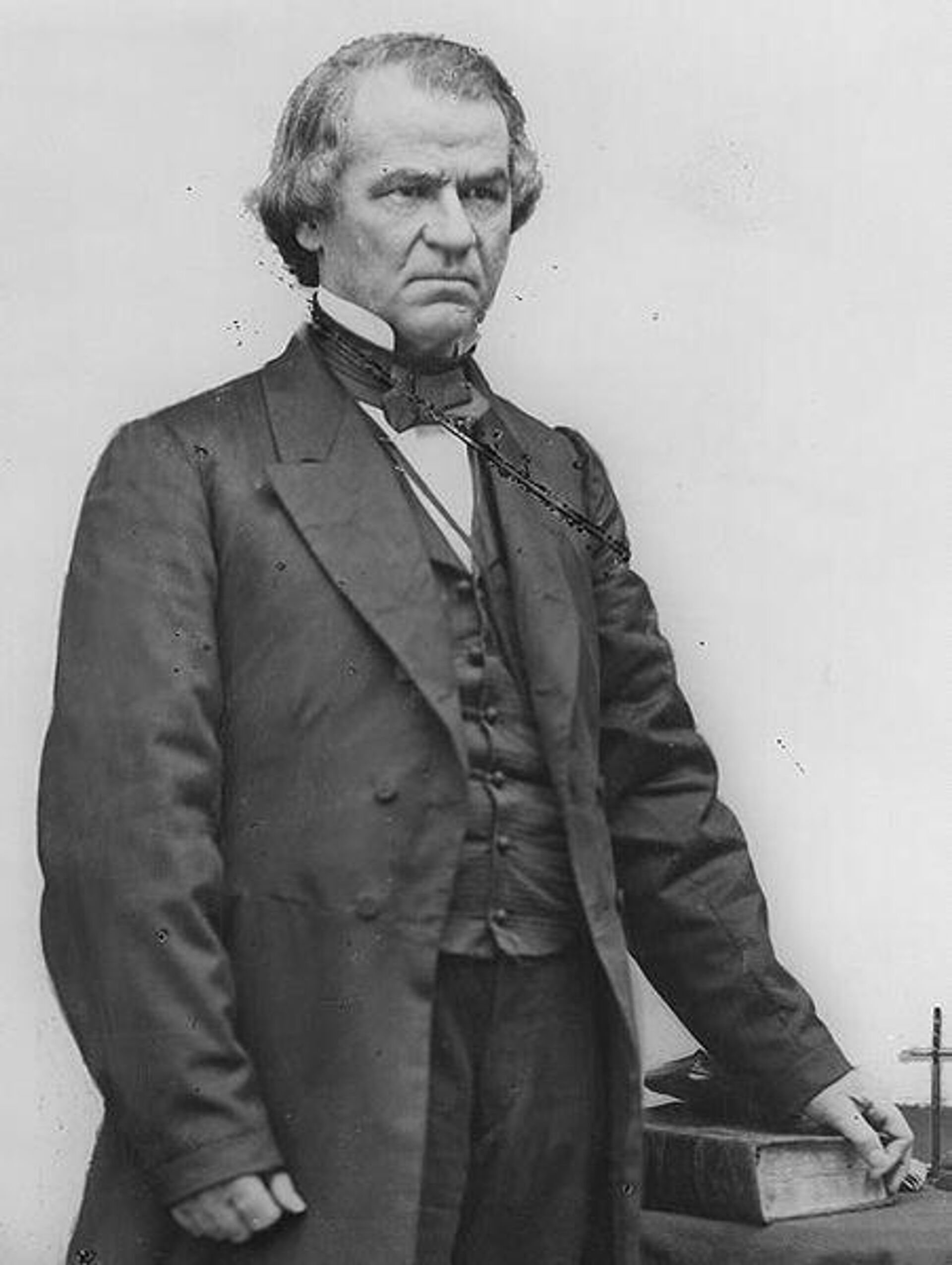Biden Latest of Five US Presidents to Face or Be Threatened With Impeachment
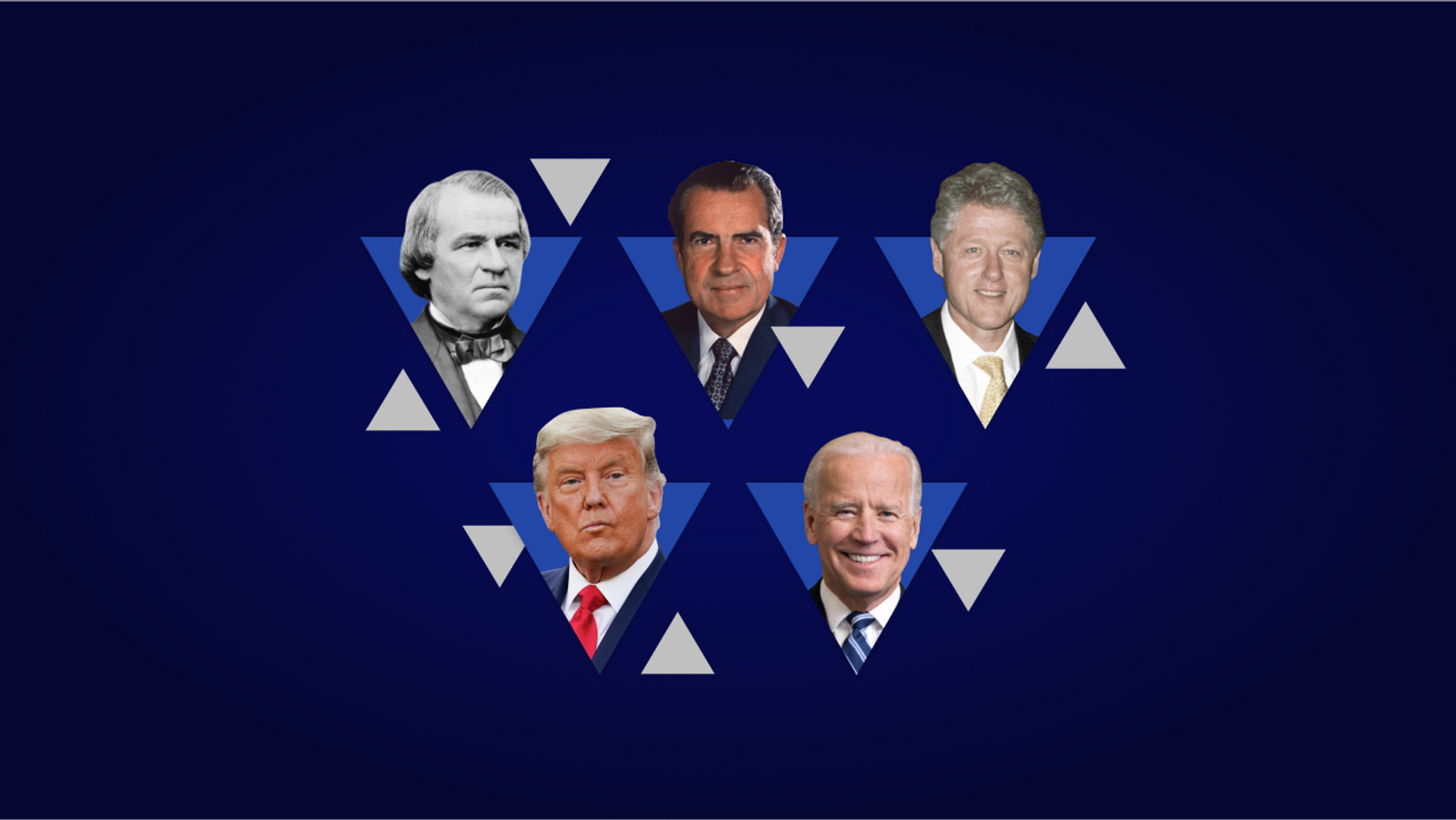
© Sputnik
Subscribe
The US Constitution provides a series of checks and balances between the three branches of federal government: the judiciary, the executive, and the legislature. Lawmakers have the ability to charge and try officials for alleged crimes, including the US President, which has happened five times since the Constitution was adopted in 1787.
The US House of Representatives has opened an impeachment inquiry into US President Joe Biden, with the first hearing of witnesses being held on Thursday. The focus of the inquiry is Biden’s relationship with his businessman son, Hunter Biden, and potential corrupt dealings between them.
Depending on what evidence the investigation yields, House lawmakers could decide to file charges against the president, which is referred to as impeachment for “high crimes and misdemeanors.” The trial would then be held by the US Senate, which would require a two-thirds majority to convict him. Conviction might or might not require him to step down as president, depending on the charges and the sentencing.
However, Biden isn’t the first president to face the possibility of impeachment: four others have also had inquiries opened into their affairs, although only three of them have actually resulted in charges being filed: US Presidents Andrew Johnson in 1868, Bill Clinton in 1998, and Donald Trump in 2019 and in 2021.
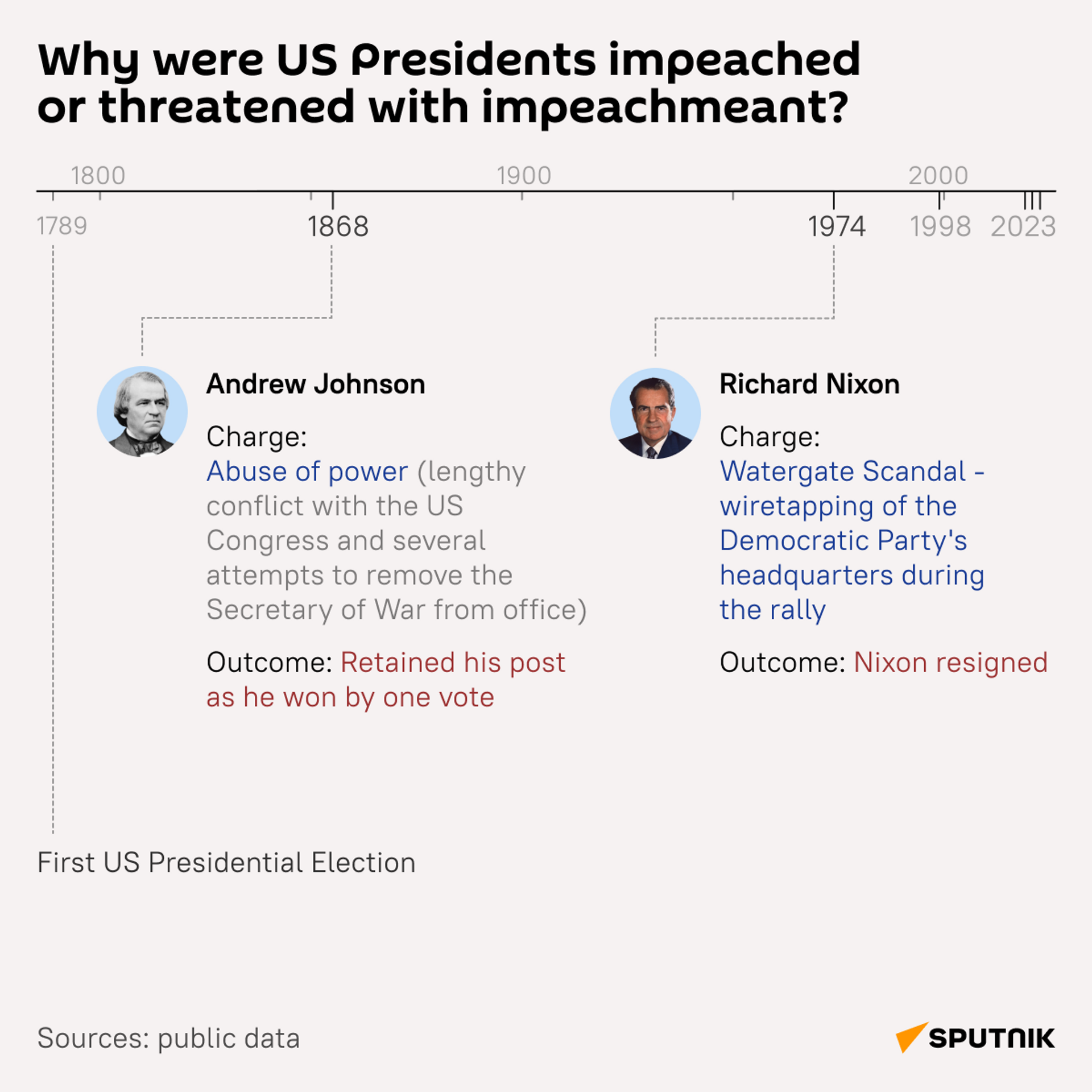
US Presidents Andrew Johnson and Richard Nixon impeachments
© Sputnik
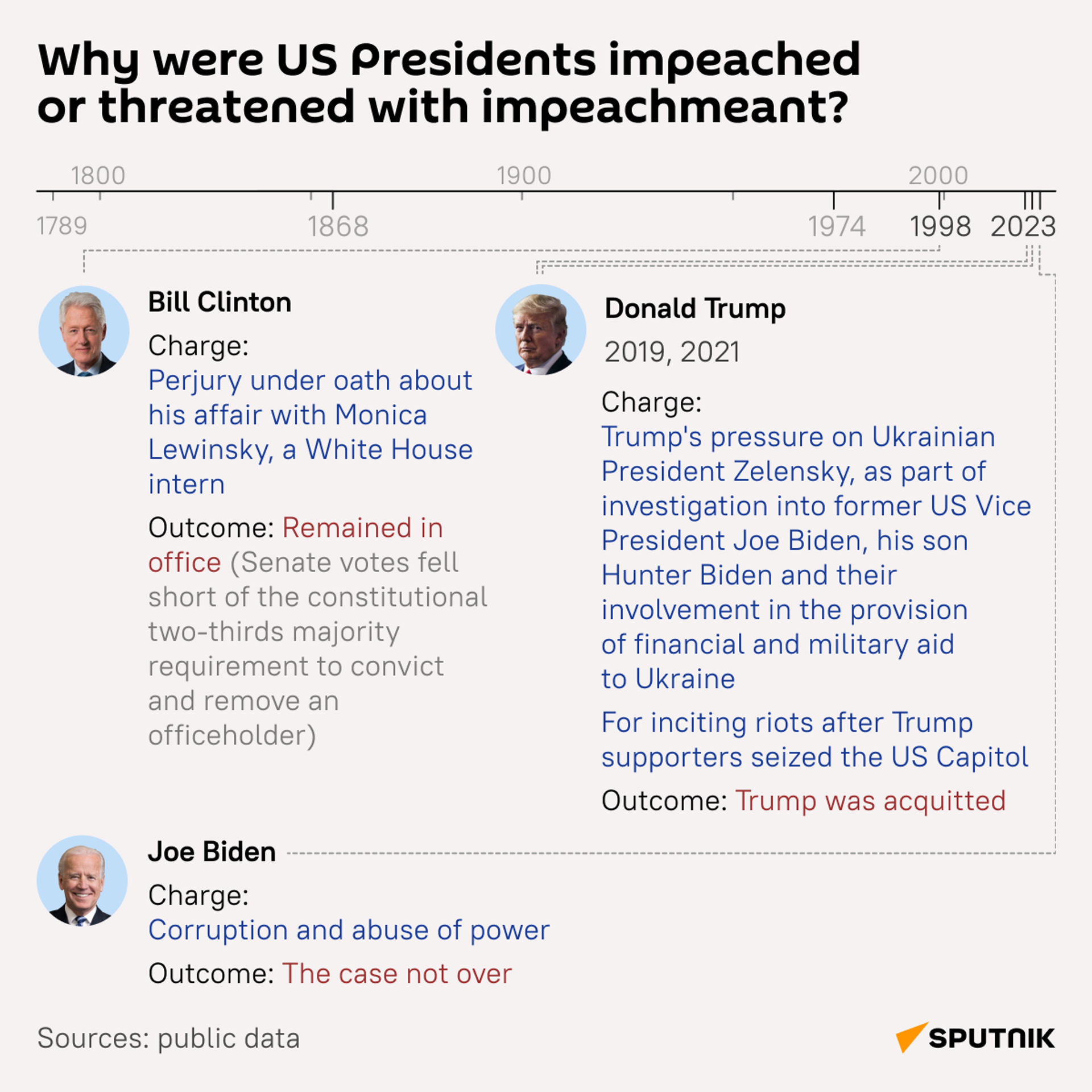
US Presidents Bill Clinton, Donald Trump, and Joe Biden impeachment charges or probes
© Sputnik
Sputnik takes a brief look at the historical record on investigating US presidents for alleged crimes committed in office.
1868: Andrew Johnson
Johnson took office when US President Abraham Lincoln was assassinated in April 1865, just weeks before the end of the US Civil War, by a pro-Confederate conspirator. Tasked with overseeing the abolition of slavery, Reconstruction, and the reintegration in the Union of the 11 US states that had rebelled, Johnson quickly became the enemy of a left-wing faction of the Republican Party.
The Radical Republicans favored military occupation of the South and the complete social integration of formerly enslaved Black Americans and saw Johnson as sympathetic to the former slave-owning white aristocracy of the South, and accused him of stonewalling Reconstruction reforms. In 1868, they saw their chance to get rid of Johnson after he fired Secretary of War Edwin Stanton, who supported Radical Republican policies, in violation of the Tenure of Office Act.
Eleven charges were filed against Johnson, accusing him of abuses of power. In the Senate trial that followed, Johnson avoided being convicted of any charge by a single vote, even though almost none of the lawmakers from the rebellious Southern states had been readmitted to Congress yet.
1974: Richard Nixon
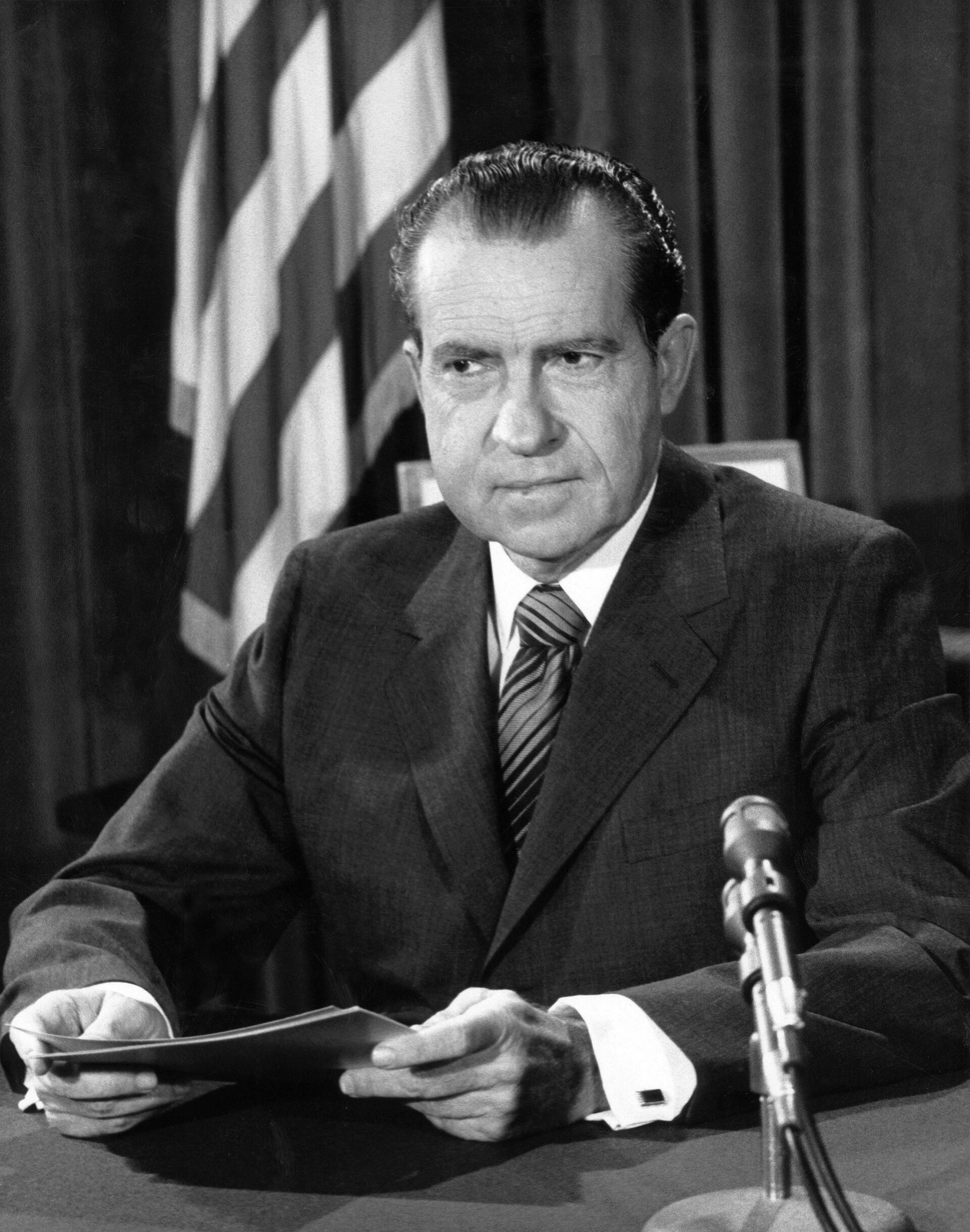
Republican president Richard Nixon about to make a TV address on 23 March 1973.
© AFP 2023 / STF / CONSOLIDATED NEWS PICTURES
More than a century later, US President Richard Nixon faced impeachment charges after a probe was opened in late 1973 as part of the Watergate Scandal. However, he resigned before the charges could be filed.
The probe began after what US media dubbed the “Saturday Night Massacre.” Nixon attempted to force Attorney General Elliot Richardson to fire Special Prosecutor Archibald Cox, who was investigating Nixon’s potential involvement in the 1972 break-in at the Democratic National Committee’s offices inside the Watergate Hotel. Richardson, seeing the firing as a political move, refused Nixon’s order and immediately resigned. Nixon then attempted to order Deputy Attorney General William Ruckelshaus to fire Cox; Ruckelshaus also refused and immediately resigned. Nixon then ordered Solicitor General Robert Bork, the third-in-charge at the Justice Department, to fire Cox; Bork complied and removed Cox from office.
A few days later, the US House of Representatives launched an impeachment probe of Nixon, concerning not just the firings but also the Watergate break-in. For months, Nixon blocked the House’s access to key evidence, including tapes in which he was believed to have discussed the break-in, dubbed the “smoking gun,” eventually releasing edited tapes and redacted transcripts.
By June 1974, the House Judiciary Committee had approved three articles of impeachment and forwarded them to the full House for a vote: obstruction of justice, abuse of power, and contempt of Congress. After Nixon’s most loyal lawmakers made clear their intent to support impeachment, Nixon announced his resignation on August 9, before the House could vote to approve the impeachment articles.
US Vice President Gerald Ford served the remaining two years of Nixon’s presidency, which ended in January 1977. Just weeks after taking over for Nixon, Ford pardoned him for any crimes he might have committed while president.
1998: Bill Clinton
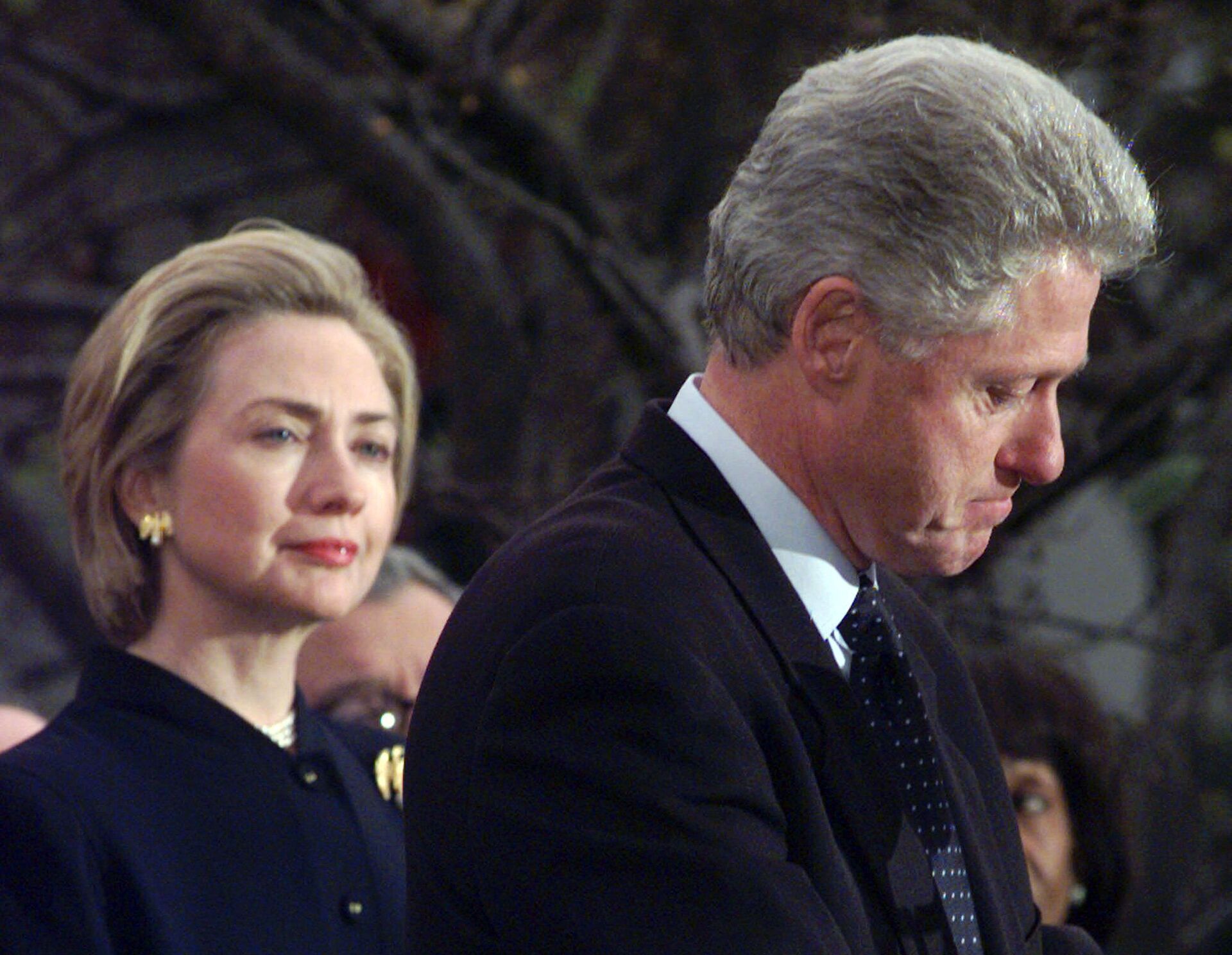
First lady Hillary Rodham Clinton watches President Clinton pause as he thanks those Democratic members of the House of Representatives who voted against impeachment in this Dec. 19, 1998 file photo
© AP Photo / SUSAN WALSH
The House opened an impeachment probe into the 42nd US president in 1998 for similar reasons that Johnson faced charges: his opponents had long desired to remove him from office and a series of scandals provided the opportunity to do so.
In 1994, an Arkansas woman named Paula Jones had accused Clinton of sexual harassment several years earlier, and the case was fought out in various US courts before reaching the US Supreme Court and being settled afterward outside of court in 1998. The case’s connection to another scandal surrounding investments by the Whitewater Development Corporation, with which Clinton had been involved before his presidency, allowed investigators to expand their probe of Clinton. That probe included an investigation of White House intern Monica Lewinsky, who admitted in an affidavit in early 1998 that she had intimate relations with President Clinton.
Clinton initially denied the accusations, but later admitted to several incidents.
House Republicans opened an impeachment probe of Clinton in October 1998, a month before the midterm elections, with expectations they would win big as a result of the scandal. However, when the Democrats unexpectedly won several House seats, threatening the GOP majority, the Republicans quickly moved to file impeachment articles against Clinton during the “lame duck” session between the election and the swearing-in of the new Congress in early January 1999.
The four counts against Clinton were: two counts of perjury, including against a grand jury and during the Jones case; one count of obstruction of justice; and one count of abuse of power. The Senate trial was held from early January to early February, with Clinton being acquitted of all charges. However, he was later cited for contempt of court by a federal judge for refusing to testify in the Jones case, and fined $90,000.
2019: Donald Trump
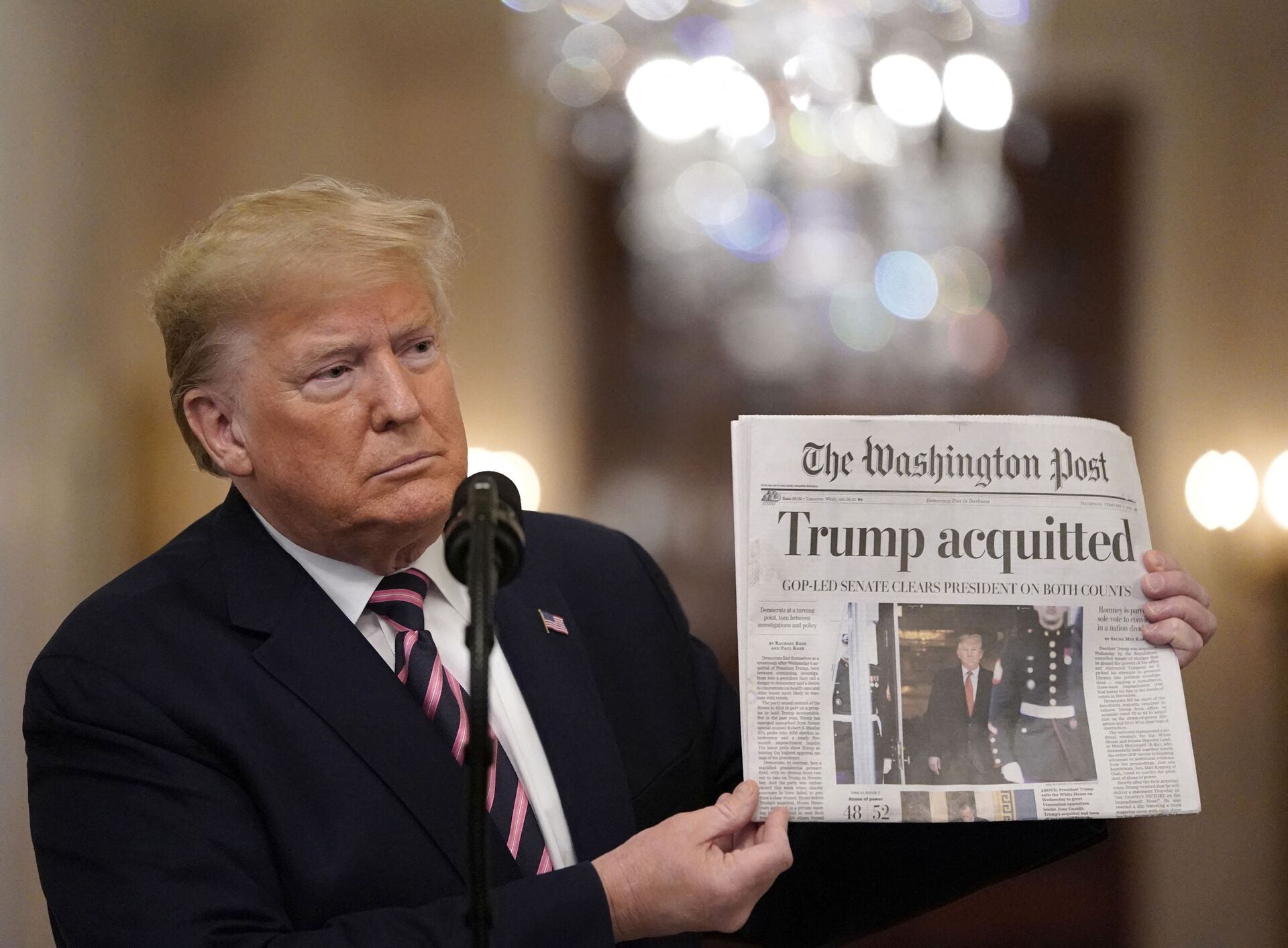
WASHINGTON, DC - FEBRUARY 06: U.S. President Donald Trump holds a copy of The Washington Post as he speaks in the East Room of the White House one day after the U.S. Senate acquitted on two articles of impeachment, ion February 6, 2020 in Washington, DC
© AFP 2023 / DREW ANGERER
The first impeachment of US President Donald Trump came in late 2019, the result of a probe into alleged events earlier that year. Trump was charged with abuse of power and obstruction of Congress, amid wider claims he attempted to solicit foreign interference in the coming 2020 US presidential election, in which it seemed all but certain he would face former US Vice President Joe Biden.
In 2016, then-Vice President Biden compelled the Ukrainian government to close its corruption investigation of Burisma, a gas company on the board of which sat Biden’s son, Hunter Biden - an action the elder Biden later boasted about during a Council on Foreign Relations event.
In 2019, after Volodymyr Zelensky unexpectedly won the Ukrainian presidential elections and became head of state, Trump allegedly pressured Zelensky to reopen that probe and to announce the discovery of evidence Ukrainians had meddled in the 2016 presidential election on the side of the Democrats, threatening to withhold a shipment of weapons if Zelensky failed to comply.
The precise unfolding of events is still unclear, but according to testimony given in the impeachment probe opened in September 2019, Trump had attempted to withhold payment for a Congressionally-mandated weapons sale to Kiev in early August, but yielded after news of a whistleblower complaint about the affair reached US media.
The impeachment charges were filed in December 2019 by the Democratically-controlled House. However, Trump was acquitted by the GOP-controlled Senate in the early 2020 trial. One Republican, US Sen. Mitt Romney (R-UT), voted against Trump for abuse of power, but not for obstruction of Congress.
2021: Donald Trump (again)
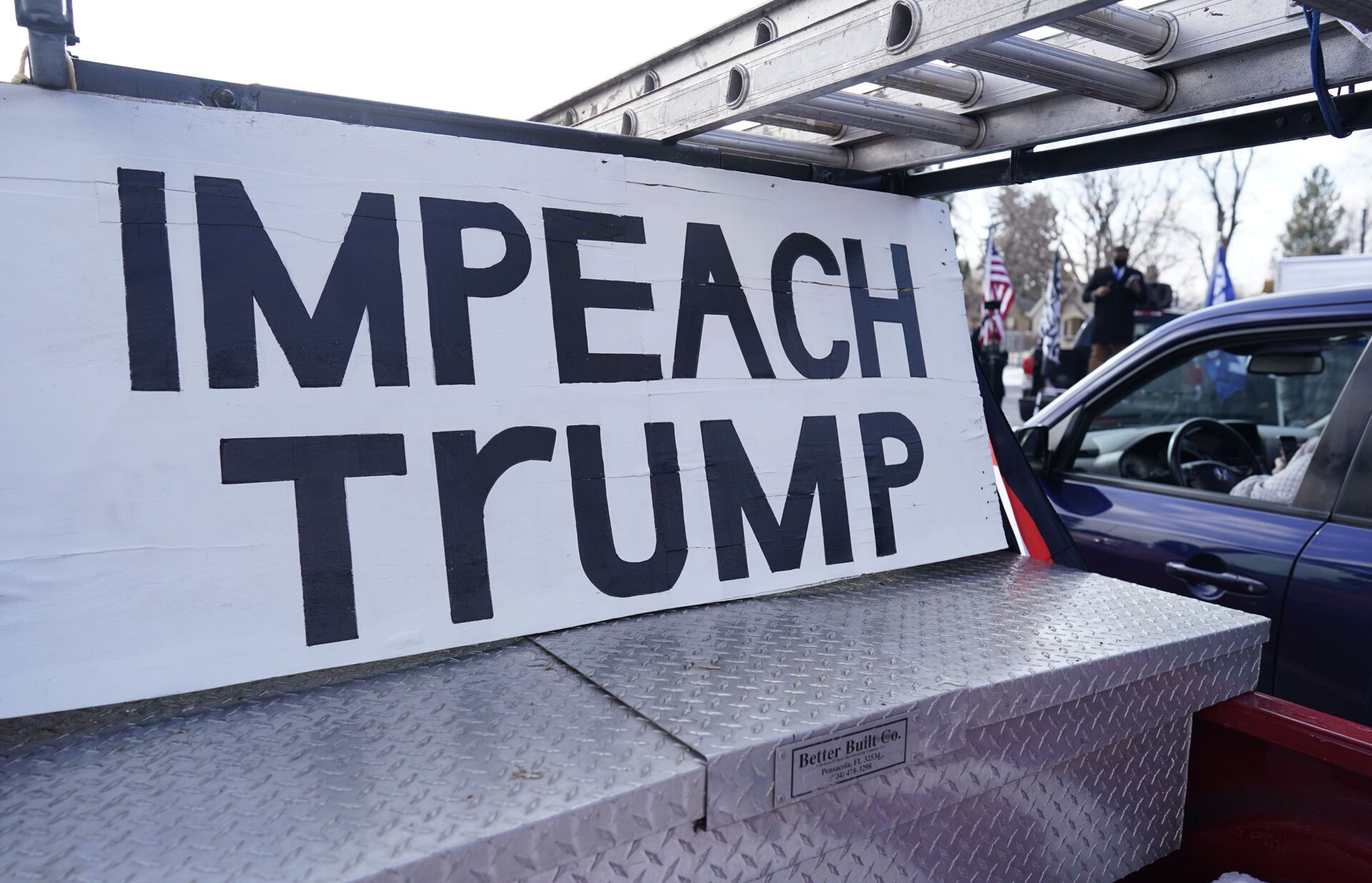
IMPEACHMENT RALLY DENVER
© AP Photo / David Zalubowski
Trump is the only president to have been impeached twice. The second round of impeachment charges came in the final days of his presidency, following the insurrection by Trump’s supporters on January 6, 2021, in Washington, DC. After attending a “Stop the Steal” rally at which Trump claimed he had lost the November 2020 presidential election due to fraud, thousands of Trump’s supporters fought their way past US Capitol Police and stormed the US Capitol Building, temporarily dispersing Congress and sacking the building.
At the time, lawmakers had convened to certify the results of the 2020 election, which said Joe Biden had won the presidency. The insurrectionists’ goals included seizing the election results and also several members of Congress and US officials, including Trump’s own vice president, Mike Pence, who had opposed his claims of fraud. Their efforts ultimately failed, and US police and National Guard soldiers cleared the national legislature several hours later.
Trump, who made several public comments during the hours-long episode, was charged with having allegedly incited the riot and for abuses of power. However, the trial was held in early February, several weeks after Trump had left office. While a majority of US Senators voted to convict Trump, the total fell short of the required two-thirds majority, and Trump was acquitted. Many Republican lawmakers said that while they disapproved of Trump’s actions, they saw the trial as political in nature.
2023: Joe Biden
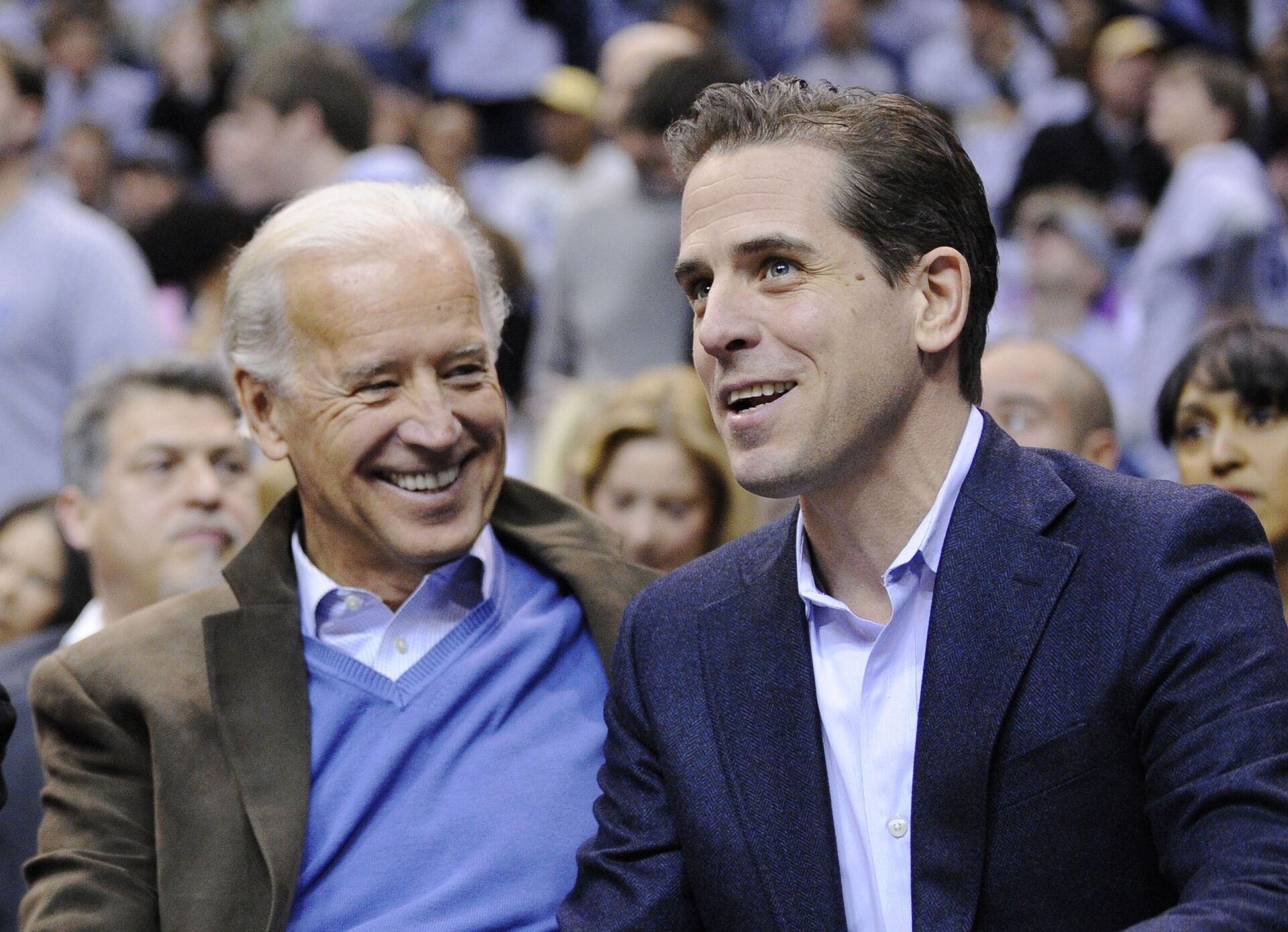
Then Vice President Joe Biden, left, and his son Hunter Biden appear at the Duke Georgetown NCAA college basketball game in Washington on Jan. 30, 2010.
© AP Photo / Nick Wass
In many ways, the impeachment probe of Biden is an extension of the affair at the center of Trump’s 2019 impeachment: alleged corruption by members of the Biden family, in particular between Joe Biden as a politician and Hunter Biden as an international businessman.
Accusations have swirled for years that Joe Biden used his political office to benefit his son’s business ventures, or that Hunter Biden had touted his father’s name as a way to open doors in the business world. Joe Biden’s 2017 admission of pressuring the Ukrainian government to fire Prosecutor General Vitkor Shokin, who had been investigating a company on the board of which Hunter Biden sat, Burisma Holdings, Ltd., is one such example.
For two years after Biden took office as US President, Democrats controlled both houses of Congress, but Republicans pledged to open a probe of the Bidens if they ever won a majority in the House - as they did in the November 2022 midterm elections. That probe was finally opened earlier this month, with the first hearings being held on Thursday.
As of yet, no charges have been filed as a result of the probe.
